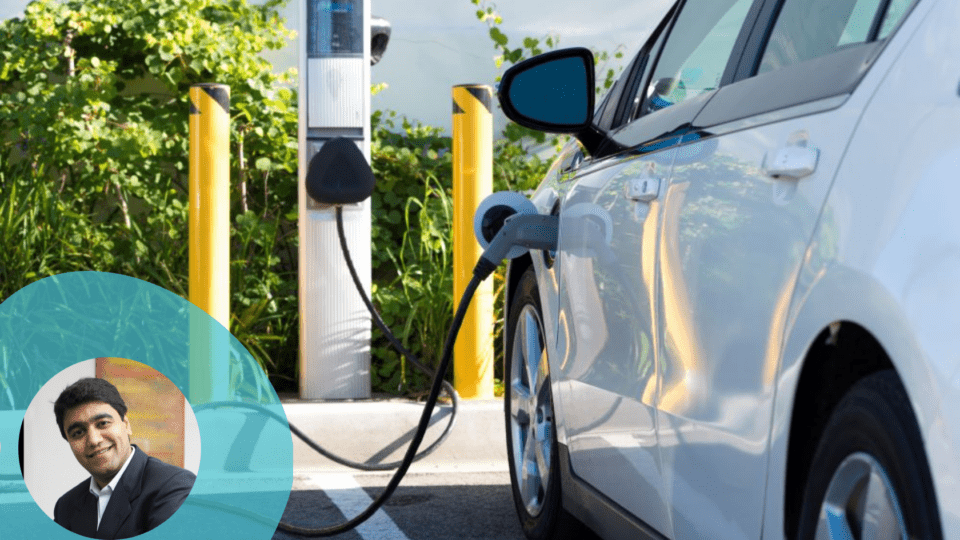Gas stations and convenience stores, once the cornerstone of road trips, are undergoing a significant transformation due to the increasing prevalence of electric vehicles (EVs). Traditionally, these establishments were quick stops for fuel and snacks, but the shift toward EVs is revolutionizing their role.
Market transitions and technology advancements are changing the fuel and convenience space, with more EVs and less gas, leading to the repurposing of these assets into grocery and convenience stores. The adoption of advanced artificial intelligence (AI) technologies is enabling convenience and fuel retailers to adapt and thrive amidst this market transition.
Industry Statistics and Market Trends
There are approximately 168,000 gas stations in the United States alone, contributing to an industry valued at over $600 billion annually. As of January 2024, plug-in EVs accounted for nearly 10% of all passenger vehicle sales in the U.S., reflecting a significant shift in consumer preferences and vehicle technology.
In 2023, over 1.2 million EVs were sold in the U.S., marking a 50% increase from the previous year. Cumulatively, nearly five million EVs have been sold, according to the U.S. Department of Energy (DOE). With this surge in EV adoption, the gas station industry is pivoting to meet the growing demand for EV charging stations. While a traditional gas fueling stop averages seven minutes, EV charging can take half an hour or longer, even with fast charging technology. This extended downtime presents a unique opportunity for operators to enhance the customer experience.
Transforming Fuel Stops into Mini-Grocery Stores
One strategy being adopted is the transformation of gas stations into mini-grocery stores, offering a wider array of fresh and prepared foods to cater to customers who spend longer periods on-site. This shift not only has the potential to increase sales and customer loyalty but also demands a comprehensive rethinking of business models. These stores must expand their product assortment, improve inventory management and optimize supply chain operations almost overnight.
The Need for Efficient Supply Chains and Inventory Management
The need for software that enables efficient, smaller-footprint supply chains, localized inventory management and precise forecasting tailored to micro-segments of customers is becoming increasingly important. Tight customer-centric assortments and planograms, optimized through computer vision, are essential to ensure shelves and spaces are optimized for profit in this new era of convenience retail. Efficient and smaller-footprint supply chains, inventory management and forecasting that are very local and focused on micro-segments of customers, along with tight customer-centric assortments and planograms using computer vision to ensure shelves and spaces are optimized for profit, are the trend.
AI: The Enabler of Transformation
AI plays a crucial role in this transition, providing powerful predictive insights to help convenience stores stock the right new products. This enhances the customer experience during extended EV charging stops, encouraging more fuel customers to explore the store and make additional purchases. A recent retail study showed that 69% of respondents reported an increase in annual revenue from AI adoption.
The Future of Convenience Retail
To support this transition, there is a growing need for software solutions that streamline supply chain operations, inventory management and forecasting. These solutions must be efficient, localized and capable of catering to micro-segments of customers. Furthermore, tight customer-centric assortments and optimized planograms, aided by computer vision, are essential for maximizing shelf space and profitability in this new era of convenience retail.
Manish Choudhary is the President of SymphonyAI’s retail / CPG division. He has more than two decades of experience leading global teams and managing P&L for publicly traded software and technology transformation-focused companies. He has deep growth experience both organically and through M&A, and he has particular passion and expertise in AI-driven digital transformation, SaaS, analytics, and machine learning. He joined SymphonyAI’s retail / CPG division from Diebold Nixdorf, where he served as EVP of Global Software, and Pitney Bowes Inc. in SVP roles in Sending Technology and Global Innovation & Products. He holds MBAs from UCLA’s Anderson School of Management and National University of Singapore.




